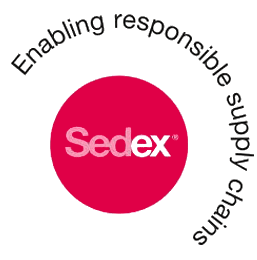How Collaboration in Global Supply Chains is Critical for Tackling Climate Change

From changing routes of supply, to resource scarcity and extreme weather events, climate change has huge implications for global supply chains.
Climate change, biodiversity, human rights and development issues are higher up the global agenda this year than ever before.
The recent adoption of the UN Sustainable Development Goals will shape the global remit for social, economic and environmental development for the next 15 years, while COP21 aims to achieve a new international global climate agreement to tackle the growing environmental crisis.
Both of these global sustainability initiatives are set to provide an important framework and vision for the future and will have a huge effect on how our world will look in the years to come.
But solutions will come in many forms and need to be driven by businesses, governments, society and individuals.
We all have a role to play in fighting climate change and it can at times only be done through collaboration.
From changing routes of supply, to resource scarcity and extreme weather events, climate change has huge implications for global supply chains.
There are many good examples of how individual companies are already committing to leadership on climate – from reducing carbon emissions, to improving energy efficiencies on their sites, to using renewable energy and embedding supplier performance in businesses throughout their supply chains.
As well as individual efforts, a growing number of companies and investors are recognising the power of collaboration to drive transparency down the supply chain and to tackle sustainability issues at scale.
Various collaborative initiatives, such as Sedex (the Supplier Ethical Data Exchange), AIM-PROGRESS, and the Bangladesh Accord, have successfully helped to boost the availability of supply chain data by enabling businesses to share information with each other.
For example, AIM-PROGRESS is a forum of leading fast-moving consumer goods manufacturers assembled to enable and promote responsible sourcing practices and sustainable supply chains. By collaborating on a pre-competitive basis, member companies can maximise their impact, sending a strong message on the benefits of many players working together and providing additional leverage that smaller purchasing companies might not possess on their own.
The Bangladesh Accord, representing over 190 brands, over 1,600 factories and more than two million workers, is an independent, legally binding agreement between global brands, retailers and trade unions designed to build a safe and healthy Bangladeshi ready-made garment (RMG) industry. Created in the immediate aftermath of the Rana Plaza factory collapse, the agreement aims to enable a working environment in which no worker needs to fear fires, building collapses, or other accidents that could be prevented with reasonable health and safety measures. Such collaboration initiatives help to tackle supply chain issues at scale.
However, another issue to look at when trying to improve supply chain standards is the nature of the supply chain information that should be captured and how it should be communicated. There is a wide range of existing codes, certifications and frameworks. This increase can be viewed as positive since it gives businesses the flexibility to choose the right method to meet their needs, but there is a limit to the number that is useful as additional codes may be redundant. This puts an extra burden on suppliers as they might struggle to prove they conform to too many different standards.
Sedex – a not-for-profit global membership organisation – was created with a dual mission to help drive improvements in working conditions and reduce duplication of ethical data in global supply chains.
Since launch in 2004, Sedex has grown to become the world’s largest collaborative platform for managing and sharing supply chain sustainability data on health & safety, labour standards, the environment and business ethics. Sedex provides its members – currently 38,000 organisations in 150 countries – with a range of multi-tier supply chain mapping solutions to help them identify, measure and manage environmental and ethical risks in their supply chains.
By connecting buyers and suppliers, Sedex not only increases transparency down multi-tier supply chains but also reduces the burden on suppliers, who only have to enter their data once to share it with multiple customers.
Sedex aims to help members to address increasing numbers of queries relating to environmental factors and the impact of climate change on their supply chains. We have recently partnered with CDP, the leader in carbon emission reporting, to help member companies address climate change risks. Many Sedex members are already reporting on GHG emissions and energy usage using CDP. This new partnership will help to decrease duplication – as members will only need to report the environmental data once.
Additionally, using this data collaboratively enables more robust risk management and builds more resilient supply chains by ensuring transparency in tracking emissions and identifying potential risks associated with climate change.
Initiatives such as these are vital in helping catalyse business-to-business partnerships to scale up sustainability efforts, but they should be complemented by business-to-government collaboration to put best practices and suitable regulations in place.
While global climate negotiations have been ongoing for more than 20 years, we are now at a crucial point in history. From rising sea levels, extinction of species, water scarcity and deforestation to extreme weather conditions threatening food security, the world is already feeling the effects of irreversible climate change.
The risks posed by climate change may be greater than ever anticipated, but so is our capacity to tackle them. This is the time when business, government and world leaders should collaborate to take bold action, adopt forward-looking strategies and call for ambitious policies that will allow the scaling up of sustainable solutions for the years to come.
About the Author
Tom Smith is Director of Strategy & Planning at Sedex. Since joining Sedex in 2007, he helped the organisation grow from a staff of four to become the world’s largest collaborative platform for managing and sharing ethical supply chain data.
Source: Sustainable Brands
Related: 2015 Likely to be Warmest on Record

Article Topics
Accenture News & Resources
What generative AI means for supply chain work Supply Chain Currents Part I: Is there a different way to move freight more effectively? Companies Shifting Away from China a Boon to U.S., Mexico Accenture survey highlights factors that can influence nearshoring decisions AI Simulation Helps Supply Chains Predict the Future Navigating Cultural, Country Differences When Nearshoring Operations Global companies are planning more regional approaches to manufacturing, selling More AccentureLatest in Supply Chain
TIm Cook Says Apple Plans to Increase Investments in Vietnam Amazon Logistics’ Growth Shakes Up Shipping Industry in 2023 Spotlight Startup: Cart.com is Reimagining Logistics Walmart and Swisslog Expand Partnership with New Texas Facility Nissan Channels Tesla With Its Latest Manufacturing Process Taking Stock of Today’s Robotics Market and What the Future Holds U.S. Manufacturing Gains Momentum After Another Strong Month More Supply Chain














